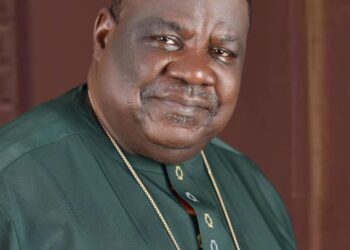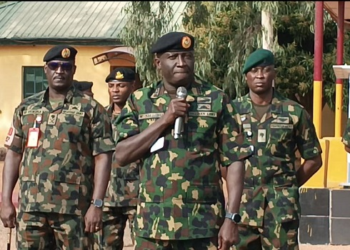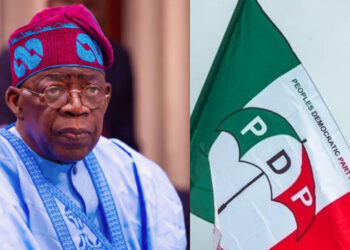Putin’s ultimatum came as Moscow and Kyiv held their first talks since the outbreak of war last Thursday, which shocked the world and provoked a massive diplomatic, economic, cultural and sporting backlash.
Shortly before the talks broke up, agreeing merely to hold a second round of negotiations “soon”, Putin laid out his prerequisites for ending the war in a phone call with French President Emmanuel Macron.
“Putin stressed that a settlement is possible only if Russia’s legitimate security interests are unconditionally taken into account, including the recognition of Russian sovereignty over Crimea, the demilitarisation and denazification of the Ukrainian state and ensuring its neutral status,” the Kremlin said.
Fighting continued to rage during the dialogue, with at least 11 people killed by Russian attacks in Ukraine’s second largest city of Kharkiv, near the Russian border.
More than 350 civilians, including 14 children, have been killed during the invasion, Ukraine says, while more than a half a million people have fled the country.
Oleg Sinegubov, the governor of the region that includes Kharkiv, said the “Russian enemy is bombing residential areas of Kharkiv, where there is no critical infrastructure, where there are no positions of the armed forces”.
An AFP photographer in the city inspected damage caused by fighting on Sunday, finding a destroyed school, as well as several burned out Russian infantry vehicles.
Russian corpses in army fatigues could also be seen in the streets.
In Kyiv, many were preparing for a fresh assault with makeshift barricades dotting the streets.
The Russian army urged Ukrainians to leave Kyiv “freely” on one highway out ahead of what is an expected Russian offensive to capture the capital.
The International Atomic Energy Agency said it was “gravely concerned” as Russian forces advanced towards Ukraine’s largest nuclear plant, strongly warning against any military action that could threaten the Zaporizhzhia facility.
Ruble plummets
Long queues for groceries snaked through the streets of Kyiv on Monday after a strict 36-hour military curfew was lifted and volunteer militias learned how to make home-made explosives.
“We will greet them with Molotov cocktails and bullets to the head,” bank employee Viktor Rudnichenko told AFP. “The only flowers they might get from us will be for their grave.”
The Russian ruble crashed to a record low as sanctions imposed by the West over the weekend had an immediate impact in Moscow, forcing the central bank to more than double its key interest rate to 20 percent.
Putin also announced emergency measures intended to prop up the ruble, including banning residents from transferring money abroad.
Many Russians raced to withdraw cash.
Retired soldier Edward Sysoyev, 51, fidgeted impatiently while in line at a bank in Moscow.
“Ninety percent of Russians are going to rush to withdraw their rubles and change them into dollars, property or even gold… it’ll be ordinary people who pay for this military bun-fight,” he said.
The Moscow Stock Market was closed Monday to prevent an expected mass sell-off.
‘Unprovoked armed aggression’
Also on Monday an emergency special session of the UN General Assembly — just the 11th held in the United Nations’ 77-year history — debated a resolution condemning Moscow’s “unprovoked armed aggression”.
“If Ukraine does not survive, the United Nations will not survive. Have no illusions,” Ukraine’s UN ambassador Sergiy Kyslytsya said.
A vote on the non-binding resolution is expected on Wednesday.
Moscow’s UN ambassador meanwhile said that 12 members of Russia’s diplomatic mission to the UN have been ordered to leave the US by the end of March.
In further reaction to the Russian invasion, the International Criminal Court announced it was launching an investigation.
“I am satisfied that there is a reasonable basis to believe that both alleged war crimes and crimes against humanity have been committed in Ukraine” since 2014,” ICC prosecutor Karim Khan said.
And Turkey said it would implement an international treaty to limit ships passing through the Dardanelles and Bosphorus straits, a move requested by Ukraine to block the transit of Russian warships.
In Russia, there were more signs of rare dissent among the usually ultra-loyal oligarchs who surround the Russian leader — in addition to anti-war demonstrations that saw an estimated 2,100 people arrested on Sunday.
Russian tycoon Oleg Deripaska said “we need real crisis managers and not fantasists”, while billionaire banker Oleg Tinkov said “innocent people are dying every day, this is unthinkable and unacceptable!”
Western defence officials and the Kyiv government say Ukrainian troops have so far kept the country’s major cities out of Russian hands despite incursions in the capital and Kharkiv over the weekend.
However the small southern city of Berdyansk has been occupied, Ukraine said.
Moscow claimed it had “gained air superiority over the entire territory of Ukraine”, while accusing Ukrainian troops of using civilians as human shields.
However Olivier Kempf, a security analyst at the Foundation for Strategic Research think tank, said that Russian forces were “not bogged down”.
“This is war, so there are difficulties. They may have logistics issues. But regardless of what we’re told, they are making progress,” he told AFP. “Only in video games do you conquer a country in two days.”
Kicked out of World Cup
The weekend featured a momentous series of announcements from Europe, with Germany unveiling a historic change to its defence policies, and the EU saying it would buy and supply arms to Ukraine, the first such move in its history.
On Monday the European Union said it would add Russian oligarchs and the Kremlin’s spokesman to its sanctions blacklist while traditionally neutral Switzerland said it would adopt the bloc’s sanctions.
An aide to French President Emmanuel Macron added that the EU and its allies were preparing new sanctions to “raise the cost of the war” for Putin and “change his calculations”.
However the EU poured cold water on Ukrainian President Volodymyr Zelensky’s request for “immediate” membership to the bloc, saying the process to join takes years.
The response from the world of sports also gathered steam, as Russia was expelled from the World Cup and the country’s clubs and national teams were suspended from all international football competitions “until further notice”, FIFA and UEFA said.
Poland has taken in more than half of the 500,000 people who have fled Ukraine, according to the UN.
Katerina Zaporojets, a laboratory worker from the central city of Cherkassy, said it took her 24 hours to arrive at the western Shegyni border post — and she will likely wait another 48 hours before crossing.
“The trip was really hard,” the 31-year-old told AFP. “It’s calmer here, but the drive was really scary.”
AFP







